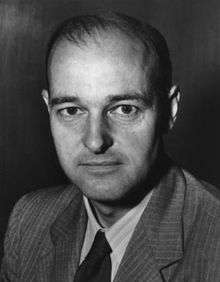
We have about 50% of the world's wealth but only 6.3% of its population. ... In the face of this situation ... we should cease to talk about vague and ... unreal objectives such as human rights, the raising of the living standards, and democratization. ... The less we are then hampered by idealistic slogans, the better. ~ George Kennan, Head of the US State Department Policy Planning Staff, February 28, 1948
The Aftermath of World War II led to the rise of two superpowers: the Soviet Union and the United States of America.
Quotes
- The pattern was set in 1942, when President Roosevelt installed a French Admiral, Jean Darlan, as Governor-General of all of French North Africa. Darlan was a leading Nazi collaborator and the author of the antisemitic laws promulgated by the Vichy government (the Nazis’ puppet regime in France). But far more important was the first area of Europe liberated—southern Italy, where the US, following Churchill’s advice, imposed a right-wing dictatorship headed by Fascist war hero Field Marshall Badoglio and the King, Victor Emmanuel III, who was also a Fascist collaborator.
- Noam Chomsky, "Restoring the Traditional Order," in What Uncle Sam Really Wants (1992), p. 15
- When British and then American troops moved into southern Italy, they simply reinstated the fascist order—the industrialists. But the big problem came when the troops got to the north, which the Italian resistance had already liberated. The place was functioning—industry was running. We had to dismantle all of that and restore the old order. ... Next we worked on destroying the democratic process. The left was obviously going to win the elections; it had a lot of prestige from the resistance, and the traditional conservative order had been discredited. The US wouldn't tolerate that.
- Noam Chomsky, "How the Nazis Won the War," Secrets, Lies and Democracy (1994) in How the World Works, p. 193
- We have about 50% of the world's wealth but only 6.3% of its population. This disparity is particularly great as between ourselves and the peoples of Asia. In this situation, we cannot fail to be the object of envy and resentment. Our real task in the coming period is to devise a pattern of relationships which will permit us to maintain this position of disparity without positive detriment to our national security. To do so, we will have to dispense with all sentimentality and day-dreaming; and our attention will have to be concentrated everywhere on our immediate national objectives. We need not deceive ourselves that we can afford today the luxury of altruism and world-benefaction.
- George Kennan, Head of the US State Department Policy Planning Staff, "Memo PPS23", written 28 February 1948, declassified 17 June 1974
- In the face of this situation we would be better off to dispense now with a number of the concepts which have underlined our thinking with regard to the Far East. We should dispense with the aspiration to "be liked" or to be regarded as the repository of a high-minded international altruism. We should stop putting ourselves in the position of being our brothers' keeper and refrain from offering moral and ideological advice. We should cease to talk about vague and—for the Far East—unreal objectives such as human rights, the raising of the living standards, and democratization. The day is not far off when we are going to have to deal in straight power concepts. The less we are then hampered by idealistic slogans, the better.
- George Kennan, Head of the US State Department Policy Planning Staff, "Memo PPS23", written 28 February 1948, declassified 17 June 1974
See also
External links
This article is issued from
Wikiquote.
The text is licensed under Creative
Commons - Attribution - Sharealike.
Additional terms may apply for the media files.